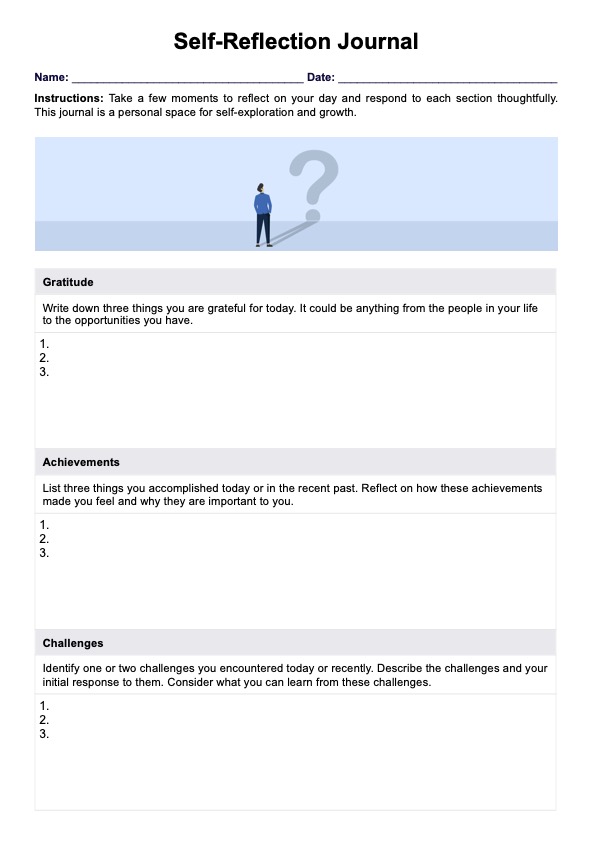Self-Reflection Journals are used by people from all walks of life, including professionals, students, and those looking to gain a deeper understanding of their lives and make meaningful changes by answering journal prompts daily.

Self-Reflection Journals
Help clients gain clarity and insight with this Self-Reflection Journal. This guided tool promotes clients' personal growth and meaningful self-awareness.
Self-Reflection Journals Template
Commonly asked questions
Self-Reflection Journals can be used at different times throughout the year, depending on your client's needs. For some people, they serve as a way to look back on the past year and review what went well and what could be improved. For others, reflective journaling is a way to look ahead to the future and set goals in their personal life for the year ahead.
The primary purpose of a Self-Reflection Journal is to assess personal growth and development. Through self-awareness, this journaling practice can be used to identify areas of progress and areas that need improvement. Maintaining this reflective journal is also a great way to assess how far someone has come in achieving their goals and identify the steps needed to reach them.
EHR and practice management software
Get started for free
*No credit card required
Free
$0/usd
Unlimited clients
Telehealth
1GB of storage
Client portal text
Automated billing and online payments











